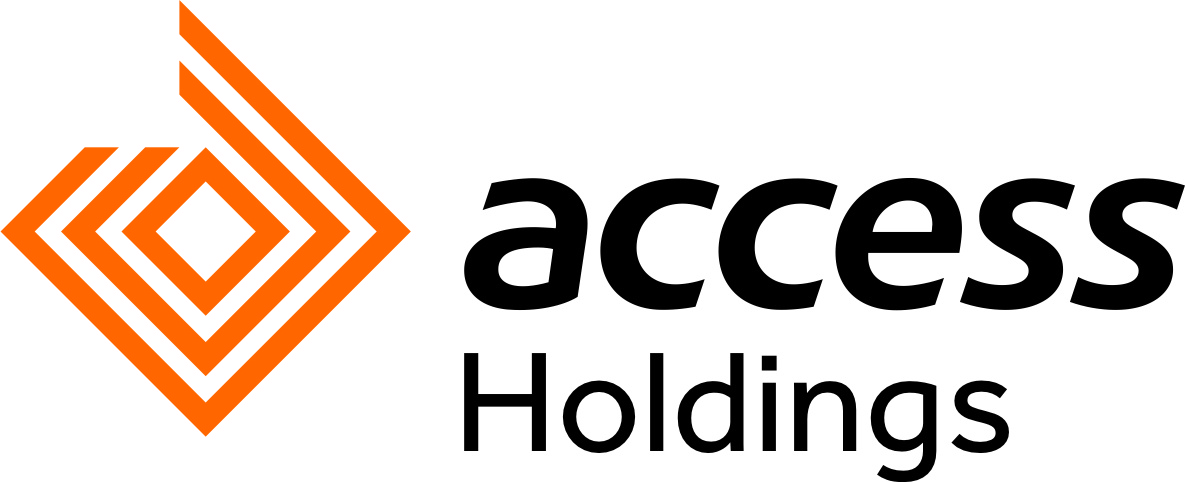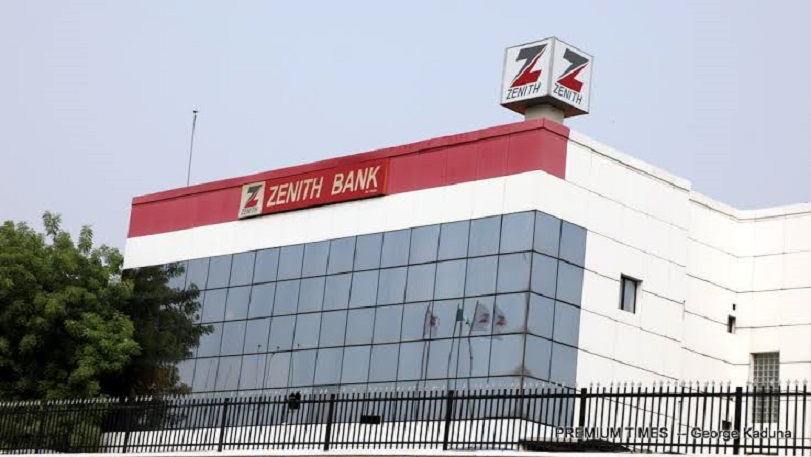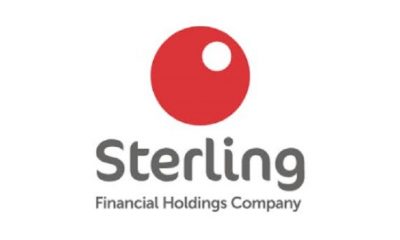Economy
The Strategic Benefits of Access Holdings’ Rights Issue for Investors

The Central Bank of Nigeria (CBN) on March 28, 2024, announced a two-year bank recapitalisation exercise, which commenced on April 1, 2024, and is expected to end on March 31, 2026. In line with this development, Access Holdings Plc, one of Nigeria’s largest financial institutions, announced plans to raise a staggering N351 billion through a rights issue.
The company has a capital raising programme of $1.5 billion, planned to be executed via equity, quasi-equity, and debt issuances. For investors, capital raising presents an opportunity to expand the company’s earnings window and improve returns on investment.
For the right issue, Access Holdings is offering 17.772 billion ordinary shares of 50 kobo each to existing shareholders at N19.75 per share. The offer opened on Monday, July 8, 2024.
The offer period, which was initially scheduled to close today, August 14, 2024, has now been extended to August 23, 2024. The extension followed the approval of the Securities and Exchange Commission (SEC).
Access Holdings extended the acceptance period for the rights issue, providing existing shareholders and other investors additional opportunity to participate in the new capital raising.
In a regulatory filing at the Nigerian Exchange (NGX), Access Holdings explained that the decision to extend was in response to the recent nationwide protest that disrupted the operations of businesses and individuals across Nigeria.
Stakeholders insist that the funds raised are expected to fortify the bank’s capital base, supporting its continued expansion and its ability to seize emerging opportunities in the financial sector.
The proceeds of the proposed Rights Issue would be used to support ongoing working capital needs including organic growth funding for its banking and other non-banking subsidiaries.
The plans for the programme were disclosed in the Group’s Notice of the 2nd Annual General Meeting held on April 19, 2024, which was published on the Nigerian Exchange portal on March 27, 2024.
Breakdown of the Rights Issue
With the rights issue, Access Holdings will see an expansion in its issued share capital from N17,772,612,811.00, divided into 35,545,225,622 ordinary shares, to N26,658,919,216.50.
This expansion is facilitated by the creation of an additional 17,772,612,811.00 ordinary shares, each priced at N0.50 Kobo, which will rank pari-passu with the existing shares of the company. Existing shareholders are to purchase one ordinary share for every two existing shares held.
The recapitalisation plan set by the CBN requires a minimum capital of N500 billion, N200 billion, and N50 billion for commercial banks with international, national, and regional licenses respectively.
Likewise, the CBN also raised capitalisation baseline for Merchant Banks (N50 billion) and Non-interest Banks (National: N20 billion and Regional: N10 billion).
The options for the banks include private placement, which allows lenders to seek new funds from pre-selected private investors and rights issue, which authorises them to invite existing shareholders to purchase additional shares in the bank at a discounted price relative to the current market price, among others.
Shareholders give nod to Access Holdings Rights Issue
Different groups of shareholders associations expressed their optimism on the ongoing rights issue by Access Holdings Plc.
They described Access Holdings as a forward-thinking financial institution with the right leadership and customer services to drive growth and profitability.
Shareholders said the ongoing capital raising exercise by the bank would lead to significant growth in operations and create higher value for all shareholders. The shareholders outlined Access Holdings’ track record of success as Nigeria’s most profitable lender, noting that the additional capital would scale up the output of the bank.
They described Access Holdings as a great financial institution that has consistently delivered good returns to shareholders.
They expressed their confidence that the bank will sustain its success trajectory success and payment of good returns to shareholders.
Chief Sunny Nwosu, founder and former National Coordinator of the Independent Shareholders Association of Nigeria (ISAN) advised Access Holdings to continue to live up to shareholders’ and other stakeholders’ expectations through quality service delivery and good returns on investment.
According to him, the rights issue will be oversubscribed given the bank’s records of performance and delivery on set targets.
Nwosu said Access Holdings remains a solid institution, which has over the years surpassed shareholders’ expectations and has what it takes to keep the flag flying higher.
“I do not think that Access Holdings will disappoint investors. They have consistently delivered and exceeded investors’ expectations, and this current offer will not be an exception,” he said.
He projected that the Access Holdings shares would record significant appreciation whereby investors would have something significant to take home now, and in the many more years to come.
Nwosu said he expects investor confidence to be sustained, as the institution’s track record guarantees acceptance and investments anytime it comes to raising new funds from the market.
Also speaking, Bisi Bakare, the National Coordinator of Pragmatic Shareholders Association (PSAN), said Access Holdings had what it takes to attract the right investors, and it is already doing so with ease.
She highlighted the bank’s consistent dividend payments and robust financial performance, making it an attractive investment.
Bakare expressed her association’s support for the Rights issue, expressing the optimism that the offer will be over-subscribed at the end of the day.
She said members of her association have been advised to take up their rights because the bank had all it takes to continue to declare profits and dividends.
She said: “I am going to take my rights, and we have advised other shareholders to do so. Investors should also see the opportunities the offer presents, based on the track record of success that is synonymous with Access Holdings. The Rights Issue is good and attractive to savvy investors”.
Taiwo Oderinde, also a member of the Proactive Shareholders Association, said Access Holdings has added value to the economy and investors.
According to him, the company has surpassed projections in terms of how it has grown from its humble beginning to the status of a global brand.
He said the bank had been able to grow through mergers and acquisitions, and investors should take advantage of the rights issue.
According to him, anyone who invests in the offers will count huge gains in the years to come. “I predict great returns to investors in the rights issue,” he said.
National Coordinator, Progressive Shareholders Association of Nigeria (PSAN), Boniface Okezie, said the bank’s expansion into new markets will begin to pay off now, which presents good opportunities for investors of all classes.
He advised the bank to continue to equip its branches in the domestic market and offshore with the right technology to enable them continually to deliver quality services and bountiful returns to shareholders and all stakeholders.
He said investors are investing at the right time, because all the years of expansion and opening in new markets will begin to produce the right results.
He said the subsidiaries within the holding company structure should also be strengthened to ensure they continue to be profitable.
Okezie advised Access Holdings to show more interest in funding the real sector to support the economy and sustain the growth of businesses.
“Overall, Access Holdings is a great brand that has stayed the course of time. Its ability to deliver to customers and all stakeholders is not in doubt, and we believe that that track record of great achievements will be sustained,” he said.
He further advised the bank to continue to hire great talents and sustain a quality reward system to ensure that the entire workforce is motivated to surpass targets and deliver bountiful returns to shareholders.
Benefits of the Rights Issue
Chairman of Access Holdings Plc, Aigboje Aig-Imoukhuede, said the group decided on a rights issue as a commitment to the bond between the group and its shareholders.
According to him, shareholder value was at the core of the group’s business vision and the group decided shareholders, who had endured to build the group to its enviable status should reap the benefits.
At the “Facts Behind the Rights Issue” session at the NGX, Aig-Imoukhuede said the group is moving to a new phase of its phenomenal growth where shareholders would reap bountiful returns on their investments.
He urged shareholders to pick their rights as they stand to gain more from their investments.
According to him, the additional capital will enable the group to maximise emerging opportunities and deliver long-term value to shareholders.
He said the group was committed to strengthening ties with shareholders and enhancing value creation.
Funding for infrastructure to rise
Access Holdings Plc reaffirmed its commitment to addressing infrastructure deficit and capital access challenges not only in Nigeria but across the continent.
Managing Director of Access Bank Plc, Roosevelt Ogbonna, said the bank’s focus on improving infrastructure at this time is informed by its desire to bridge the gap and connect Africa with the rest of the world.
“As one of the continent’s largest and most diversified financial services groups, the Group is poised to tackle Africa’s integration into global markets, which remains a significant challenge, hindering the continent’s economic growth and development, particularly in an era, where globalisation is rapidly reshaping economies worldwide.”
The Access Bank’s chief, who spoke in light of the bank’s ongoing Rights Issue presentation at the Nigerian Exchange (NGX), said: “We are positioning ourselves to be one of the most respected banks globally,” adding, “Our focus is on superior service across all the continents and countries we are operational in.”
Access Bank’s customer base, he stated, is expected to grow to 125 million by 2027, further cementing our market leadership.
This ambitious growth plan, in his words, “is part of the broader strategy to drive organic growth through strategic acquisitions, partnerships with international banks, and substantial investments in infrastructure and technology,”
Access Holdings’ ambitious five-year strategic plan, Ogbonna highlighted, aims to establish a presence in at least 26 countries by 2027, including the Organisation for Economic Co-operation and Development (OECD) countries, the United Kingdom, France and the USA.
To support this growth, he said, “Access Holdings plans to develop a cutting-edge digital platform and automated self-services to better serve its customers, as well as open cost-effective branches in strategic locations within and beyond Africa.”
According to him, building on this key aspect of Access Holdings’ growth strategy is the formation of strategic partnerships with major players in the financial sector. One of which is the Group’s partnership with Safaricom Plc and M-PESA Africa to expand cross-border money solutions in Africa.
As he put it, “this partnership will leverage Access Bank’s extensive network and presence across 15 African countries, including Nigeria, Kenya, Ghana and Tanzania, to provide affordable remittance solutions to key markets.”
He said Access Holdings is extending its cross-border money solutions in Africa through strategic alliances with Safaricom Plc and M-PESA Africa, leveraging its broad network of 15 African nations to provide competitive remittance options.
Besides, he said the financial services group is collaborating with MasterCard to create a payment infrastructure that integrates a single cross-border money transfer system across multiple African markets.
This solution, Ogbonna emphasised, will enable businesses and consumers to make and receive international payments in over 150 countries, thereby enhancing the accessibility and efficiency of cross-border payments.
He stressed that Access Holdings’ strategic expansion plan could position Africa as a global economic leader, expanding financial and credit services to remote areas of the continent.
“The opportunities for African integration and economic progress are vast,” adding that by capitalising on its extensive network, large customer base, geographic reach, and market leadership, “Access Holdings is well-equipped to unlock new opportunities for African businesses and consumers, enhancing the continent’s interconnectedness.
Ogbonna said Access Bank has experienced significant growth, particularly following its merger with Diamond Bank, pointing out that this merger has positioned Access Bank as one of the largest retail banks in Africa by customer base and the largest by total assets.
He said Access Bank currently serves its markets through Retail, Business, Commercial and Corporate, saying over the past 18 years, the bank has demonstrated strong growth potential, solidifying its position as a leader in the African banking space.
The goal of becoming Africa’s gateway to the world, he said, is driven by the company’s plan to be the continent’s preferred trade financier and payment solutions provider.
According to him, this strategy leverages the enormous potential in trade and payment, including Africa’s $24 billion electronic payments market, growing at an annual rate of 30 per cent; the $950 billion in cross-border trade; and the $100 billion in cross-border payments and remittances.
Economy
Why Transparency Matters in Your Choice of a Financial Broker

Choosing a Forex broker is essentially picking a partner to hold the wallet. In 2026, the market is flooded with flashy ads promising massive leverage and “zero fees,” but most of that is just noise. Real transparency is becoming a rare commodity. It isn’t just a corporate buzzword; it’s the only way a trader can be sure they aren’t playing against a stacked deck. If a broker’s operations are a black box, the trader is flying blind, which is a guaranteed way to blow an account.
The Scam of “Zero Commissions”
The first place transparency falls apart is in the pricing. Many brokers scream about “zero commissions” to get people through the door, but they aren’t running a charity. If they aren’t charging a flat fee, they are almost certainly hiding their profit in bloated spreads or “slippage.” A trader might hit buy at one price and get filled at a significantly worse one without any explanation. This acts as a silent tax on every trade. A transparent broker doesn’t hide the bill; they provide a live, auditable breakdown of costs so the trader can actually calculate their edge.
The Conflict of Market Making
It is vital to know who is on the other side of the screen. Many brokers act as “Market Makers,” which is a polite way of saying they win when the trader loses. This creates a massive conflict of interest. There is little incentive for a broker to provide fast execution if a client’s profit hurts their own bottom line. A broker with nothing to hide is open about using an ECN or STP model, simply passing orders to the big banks and taking a small, visible fee. If a broker refuses to disclose their execution model, they are likely betting against their own clients.
Regulation as a Safety Net
Transparency is worthless without an actual watchdog. A broker that values its reputation leads with its licenses from heavy-hitters like the FCA or ASIC. They don’t bury their regulatory status in the fine print or hide behind “offshore” jurisdictions with zero oversight. More importantly, they provide proof that client funds are kept in segregated accounts. This ensures that if the broker goes bust, the money doesn’t go to their creditors—it stays with the trader. Without this level of openness, capital is essentially unprotected.
The Withdrawal Litmus Test
The ultimate test of a broker’s transparency is how they handle the exit. There are countless horror stories of traders growing an account only to find that “technical errors” or vague “bonus terms” prevent them from withdrawing their money. A legitimate broker has clear, public rules for getting funds out and doesn’t hide behind a wall of unreturned emails. If a platform makes it difficult to see the exit strategy, it’s a sign that the front door should have stayed closed.
Conclusion
In 2026, honesty is the most valuable feature a broker can offer. It is the foundation that allows a trader to focus on the charts instead of worrying if their stops are being hunted. Finding a partner with clear pricing, honest execution, and real regulation is the first trade that has to be won. Flashy marketing is easy to find, but transparency is what actually keeps a trader in the game for the long haul.
Economy
Nigeria’s Stock Market Indices Shrink 0.41% Amid Panic Sell-Offs

By Dipo Olowookere
The Nigerian Exchange (NGX) Limited came under panic sell-offs on Thursday, as the investing community awaits the outcome of a probe into trading activities around one of the stocks on the bourse.
On Monday, trading in Zichis equities was prohibited by the regulator after it gained almost 900 per cent in one month of being listed by introduction on the growth board of the exchange.
This action triggered cautious trading on Customs Street, and things have not remained the same since then.
Yesterday, the key performance indices of the Nigerian bourse further depreciated by 0.41 per cent, the third straight loss this week, as investors book profit before being trapped.
It was observed that the energy industry gained 0.12 per cent and was the only one in green, as the industrial goods space shed 1.19 per cent, the banking counter depreciated by 0.63 per cent, the insurance sector lost 0.32 per cent, and the consumer goods segment tumbled by 0.03 per cent.
As a result, the All-Share Index (ASI) contracted by 802.39 points to 193,567.81 points from 194,370.20 points, and the market capitalisation decreased by N515 billion to N124.239 trillion from N124.754 trillion.
During the session, investors traded 868.5 million shares worth N31.5 billion in 69,310 deals compared with the 1.4 billion shares valued at N46.2 billion exchanged in 70,222 deals at midweek, showing a drop in the trading volume, value, and number of deals by 37.96 per cent, 31.82 per cent, and 1.30 per cent, respectively.
Jaiz Bank led the activity chart with 78.9 million equities valued at N1.2 billion, Japaul traded 73.3 million stocks worth N274.8 million, Access Holdings exchanged 66.9 million shares for N1.7 billion, Chams sold 56.9 million equities worth N239.6 million, and Zenith Bank transacted 45.5 million stocks valued at N4.1 billion.
The worst-performing stock for the day was Jaiz Bank after it lost 9.98 per cent to trade at N12.63, Ikeja Hotel declined by 9.90 per cent to N37.75, John Holt shrank by 9.90 per cent to N8.65, Enamelware slipped by 9.88 per cent to N36.50, and Cadbury went down by 9.69 per cent to N61.95.
On the flip side, FTN Cocoa was the best-performing stock after it gained 10.00 per cent to sell for N6.05, RT Briscoe improved by 9.95 per cent to N11.38, Deap Capital soared 9.92 per cent to N6.98, Japaul grew by 9.91 per cent to N3.77, and Ellah Lakes surged 9.72 per cent to N11.85.
Investor sentiment remained bearish as the exchange finished with 30 price gainers and 38 price losers, implying a negative market breadth index.
Economy
Champion Breweries Concludes Bullet Brand Portfolio Acquisition

By Aduragbemi Omiyale
The acquisition of the Bullet brand portfolio from Sun Mark has been completed by Champion Breweries Plc, a statement from the company confirms.
This marks a transformative milestone in the organisation’s strategic expansion into a diversified, pan-African beverage platform.
With this development, Champion Breweries now owns the Bullet brand assets, trademarks, formulations, and commercial rights globally through an asset carve-out structure.
The assets are held in a newly incorporated entity in the Netherlands, in which Champion Breweries holds a majority interest, while Vinar N.V., the majority shareholder of Sun Mark, retains a minority stake.
Bullet products are currently distributed in 14 African markets, positioning Champion Breweries to scale beyond Nigeria in the high-growth ready-to-drink (RTD) alcoholic and energy drink segments.
This expansion significantly broadens the brewer’s addressable market and strengthens its revenue base with an established, profitable portfolio that already enjoys strong brand recognition and consumer loyalty across multiple markets.
“The successful completion of our public equity raises, together with the formal close of the Bullet acquisition, marks a defining moment for Champion Breweries.
“The support we received from both existing shareholders and new investors reflects strong confidence in our long-term strategy to build a diversified, high-growth beverage platform with pan-African scale.
“Our focus now is on disciplined execution, integration, and delivering sustained value across markets,” the chairman of Champion Breweries, Mr Imo-Abasi Jacob, stated.
Through this transaction, Champion Breweries is expected to achieve enhanced foreign exchange earnings, expanded distribution leverage across African markets, integrated supply chain efficiencies, portfolio diversification into high‑growth consumer beverage categories, and strengthened presence in the RTD and energy drink segments.
The acquisition accelerates Champion Breweries’ transition from a regional brewing business to a multi-category consumer platform with continental reach.
Bullet Black is Nigeria’s leading ready-to-drink alcoholic beverage, while Bullet Blue has built a strong presence in the energy drink category across several African markets.
-

 Feature/OPED6 years ago
Feature/OPED6 years agoDavos was Different this year
-
Travel/Tourism10 years ago
Lagos Seals Western Lodge Hotel In Ikorodu
-

 Showbiz3 years ago
Showbiz3 years agoEstranged Lover Releases Videos of Empress Njamah Bathing
-

 Banking8 years ago
Banking8 years agoSort Codes of GTBank Branches in Nigeria
-

 Economy3 years ago
Economy3 years agoSubsidy Removal: CNG at N130 Per Litre Cheaper Than Petrol—IPMAN
-

 Banking3 years ago
Banking3 years agoSort Codes of UBA Branches in Nigeria
-

 Banking3 years ago
Banking3 years agoFirst Bank Announces Planned Downtime
-

 Sports3 years ago
Sports3 years agoHighest Paid Nigerian Footballer – How Much Do Nigerian Footballers Earn






















